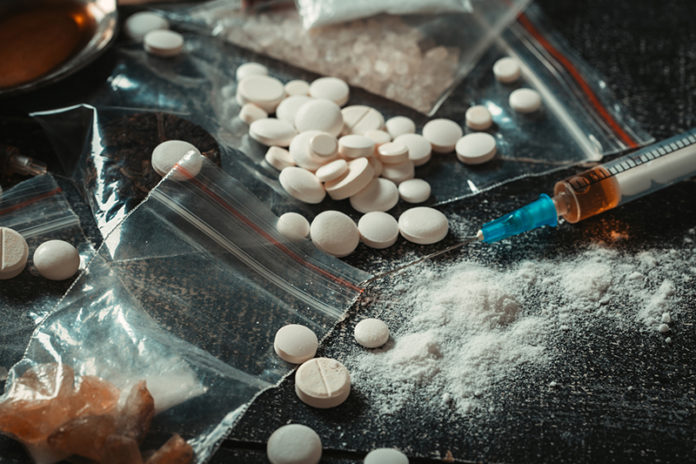In the aftermath of the November election, public attention focused on the sudden termination of Donald Trump’s presidency. Largely overlooked was a development that could begin to shut down another destructive phenomenon. The people of Oregon voted to remove criminal penalties for possession of any illicit drugs.
Heroin? Meth? Cocaine? They will remain illegal in the state, but in the same sense that parking by a fire hydrant is illegal. Police may stop violators and issue citations, but no one will be arrested for carrying a small amount of drugs for personal use. (Selling them will remain a criminal offense.)
The change is happening in only one state, and it’s an incremental reform from Oregon’s past policy, which was to classify all such offenses as misdemeanors. But a crack in a windshield can eventually shatter the whole thing, and Measure 110 puts a noticeable fissure in the edifice of the drug war.
Oregon may have earned its reputation as a coastal outpost of woke eccentricity, but in drug policy, it’s often led the way. It was the first state to decriminalize the possession of cannabis and one of the first to authorize medical marijuana. Most states have since done the same.
Its voters were early in legalizing recreational pot, in 2014. Fourteen other states and the District of Columbia are now on board. Oregon was one of the first to “de-felonize” possession of all drugs, reducing these offenses to misdemeanors. It’s now the law in 20 other states.
In each instance, Oregon helped demonstrate that easing restrictions didn’t produce a hapless society of dazed stoners. By decriminalizing hard-drug use, it can do even more to show the wisdom of greater tolerance.
The measure makes another major change: using the savings from not arresting and incarcerating offenders to help those who want help. It directs a share of revenue from taxes on marijuana to this wholesome purpose.
The money would pay for expanded treatment, housing and “harm reduction” efforts such as syringe exchanges. Instead of targeting drug use and addiction as crimes, Oregon will treat them as health and social problems that warrant cures rather than punishment.
By American standards, this is a radical shift. It invites visions of legions of addicts shooting up in the gutters. But fear not. It’s already been tried in Europe, notably Portugal and Switzerland, with reassuring results.
Joanne Csete, a professor at the Columbia University Mailman School of Public Health, says that Portugal decriminalized all drugs in 2001 partly to combat the spread of HIV through illicit drug injections. The result, she told me, was “the near disappearance of HIV linked to drug injection as a public health problem.” Not only that, “there was a remarkable decline in problematic drug use.”
The overdose death rate plunged. The Czech Republic, Csete notes, also succeeded in curbing HIV this way. In both countries, expanded access to addiction treatment has done much to reduce harmful behavior. The prevailing approach in Europe is formal or informal decriminalization, and its overdose death rate is about 11% of ours.
Oregon’s new approach may also help break down barriers that make it hard for drug users to get treatment. Methadone and buprenorphine have proven effective in helping heroin users overcome their addiction, but stifling regulations have hindered their availability.
Only one in 10 Oregonians who need treatment for substance abuse are able to get it.
Anything that improves access to voluntary treatment programs is bound to eventually affect attitudes and laws — besides helping those struggling with addiction.
Scrapping the punitive approach will mean that fewer Oregonians face the trauma of being arrested and locked up. They also won’t acquire criminal records that can deprive them of jobs, housing and higher education. Classifying illicit-drug users as criminals pushes them toward other types of crime.
Ask yourself: Would we help alcoholics by putting them behind bars? If not, why do it with people dependent on heroin or cocaine?
The shift will have enormous benefits, particularly for the most vulnerable. A report by the state’s Criminal Justice Commission said that Measure 110 would reduce the number of arrests and convictions for drug possession by some 90% — and virtually eliminate racial disparities in those arrests and convictions.
Oregon is trying a bold experiment in humane alternatives to prohibition, and it could have far-reaching effects. One thing we’ve learned is that when it comes to drug policy, what happens in Oregon doesn’t stay in Oregon.

































